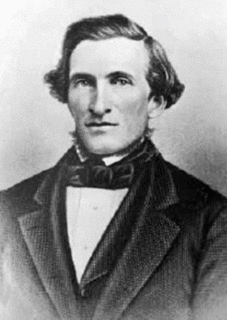A Quote by Kenneth Scott Latourette
The primary source of the appeal of Christianity was Jesus - His incarnation, His life, His crucifixion, and His resurrection.
Related Quotes
Jesus Christ was the only one capable of performing the magnificent Atonement because He was the only perfect man and the Only Begotten Son of God the Father. He received His commission for this essential work from His Father before the world was established. His perfect mortal life devoid of sin, the shedding of His blood, His suffering in the garden and upon the cross, His voluntary death, and the Resurrection of His body from the tomb made possible a full Atonement for people of every generation and time.
In His discourses, His miracles, His parables, His sufferings, His resurrection, He gradually raises the pedestal of His humanity before the world, but under a cover, until the shaft reaches from the grave to the heavens, whenHe lifts the curtain, and displays the figure of a man on a throne, for the worship of the universe; and clothing His church with His own power, He authorizes it to baptize and to preach remission of sins in His own name.
Jesus loved the will of His Father. He embraced the limitations, the necessities, the conditions, the very chains of His humanity as He walked and worked here on earth, fulfilling moment by moment His divine commission and the stern demands of His incarnation. Never was there a word or even a look of complaint.
I'm from Oklahoma City, and there's a statue across from the site of the Alfred P. Murrah Federal Building of Jesus. It's called 'Jesus Wept.' And I love this statue because it's a statue of Jesus with his head in his hand. And his sadness and his pain at some of the choices that are made here - that just breaks his heart.
Apart from it, the incarnation and the ministry would lose all their significance, the crucifixion would be but a martyrdom, and the cross a symbol of the victory of death over life. By the Resurrection it was that the Crucified One was "declared to be the Son of God with power," the great truth on which the Christian's faith is founded, and to which his hope is anchored. That Christ died for our sins is the Gospel of the Christian religion regarded as a human cult. The Gospel of Christianity goes on to declare "That He rose again the third day according to the Scriptures"
Mary adored Jesus as the Bridegroom of souls. Union is the final purpose of love. Jesus by the gift of His substance in the Eucharist unites Himself with our souls as with His dear spouses. As a Bridegroom, He gives them all His possessions, His name, His heart, His whole Self, but on the condition that the soul reciprocates. The soul, His spouse, shall live for Him only
The grand reason of the burst of public sentiment in anathemas upon Christ and his disciples, causing his crucifixion, was evidently based upon polygamy, according to the testimony of the philosophers who rose in that age. A belief in the doctrine of a plurality of wives caused the persecution of Jesus and his followers. We might almost think they were 'Mormons.'








































